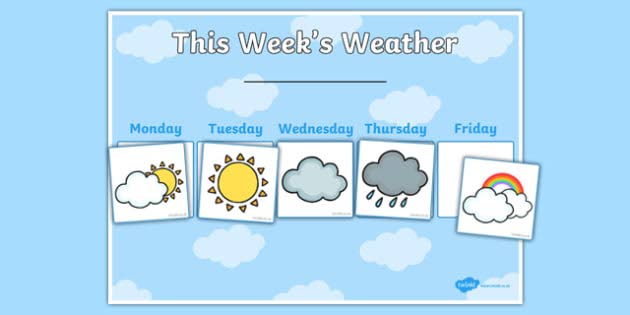Weather reports and planning your day

"Tomorrow will be sunny, with a temperature high of 30 degrees Centigrade, a few midday showers and light winds from the east. Seas will be moderate," said the weatherman.
Every evening we get weather reports on television or on radio to help us prepare for the next day.
Will we enjoy a sunny day?
Should we take an umbrella?
Some weather warnings can be more serious. There may be a storm and perhaps flooding.
Weather refers to day to day temperature, wind and rainfall activity. It describes the state of the atmosphere – cold or hot, wet or dry, calm or stormy, clear or cloudy conditions. Other conditions that influence weather are temperature, air pressure and rain. The sun and latitude are major influences on weather. Think of the Equator at Latitude zero degrees. Think of the North and South Poles, furthest from the effects of light and heat from the sun. It is always hot at the Equator and cold at the Poles.
Earth spins once on its axis every 24 hours in its orbit around the sun, resulting in day and night. This spinning movement of the earth causes winds and tides and currents in the oceans, as well as changes in temperature and weather systems, like hurricanes, cyclones, tornadoes and storms. Temperature at high mountain levels are colder. Temperatures are hotter at lowland levels. Meteorologists or those who forecast weather, study information provided through weather satellites positioned above earth, that constantly monitor conditions on earth.

Some easy questions for you
Pretend you are a weatherman, write a weather report.
Is the weather the same everyday?
Name two things that influence weather
Why are weather reports important?
How does the spinning of earth on its axis affect weather?
Where would you find weather satellites?
How long does the earth take to orbit the sun?


Comments
"Weather reports and planning your day"